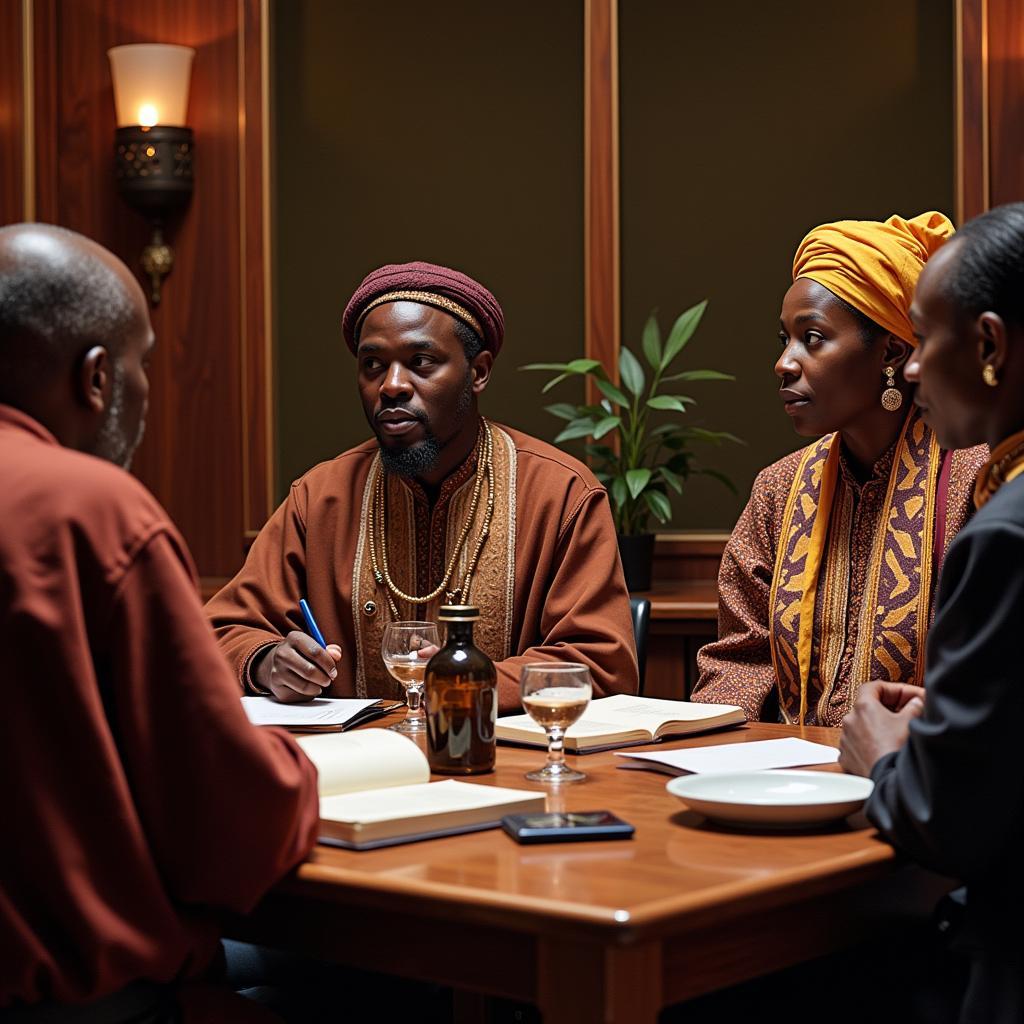Exploring African Kabbalah: Unveiling Hidden Connections
African Kabbalah delves into the fascinating, albeit often overlooked, intersections between Jewish mystical traditions and various African spiritual systems. This exploration isn’t about claiming direct lineage or suggesting a singular unified system. Instead, it’s about recognizing intriguing parallels in cosmological concepts, spiritual practices, and the pursuit of understanding the divine. This journey will take us through various African belief systems, highlighting common threads and exploring the potential for a deeper understanding of both Kabbalah and African spirituality.
Unveiling the Mysteries: African Spirituality and Kabbalistic Parallels
The study of African Kabbalah isn’t about imposing one tradition onto another. It’s a conversation, a comparative exploration that acknowledges the unique tapestry of African spiritual thought while recognizing potential resonances with Kabbalistic ideas. Many African spiritual traditions, like Kabbalah, emphasize a hidden, interconnected reality beyond the physical world. This concept of interconnectedness, a core principle in both traditions, suggests a deeper understanding of the universe and our place within it. We’ll examine how these concepts manifest in different African cultures, comparing them to Kabbalistic principles of emanation and the Tree of Life.
Comparing Cosmologies: The Tree of Life and African Spiritual Systems
The Kabbalistic Tree of Life, a symbolic representation of the divine emanations, can be seen as a framework for understanding creation. Could similar frameworks exist within African spiritual systems? We’ll delve into various African cosmologies, exploring how they conceptualize the divine, creation, and the relationship between the spiritual and physical realms. From the Yoruba Orisha pantheon to the Dogon understanding of the cosmos, we’ll discover the rich diversity of African spiritual thought and consider how it relates to the Kabbalistic model.
For instance, the concept of emanation, central to Kabbalah, finds resonance in many African traditions. The idea of a divine force emanating and creating the universe is mirrored in the stories and beliefs surrounding the creation myths of various African cultures. This section will further examine the specific aspects of these creation myths and their alignment with Kabbalistic concepts.
African Kabbalah: A Journey of Exploration, Not Appropriation
It’s important to approach this topic with sensitivity and respect, avoiding the pitfalls of cultural appropriation. African Kabbalah is not about claiming a historical link where none exists. Instead, it’s a comparative study, an invitation to appreciate the richness and depth of both traditions. This approach requires acknowledging the unique histories and contexts of each belief system, fostering a dialogue that celebrates diversity and promotes understanding.
Respectful Dialogue: Avoiding Misinterpretations and Misappropriation
The conversation surrounding African Kabbalah must be rooted in respect and a genuine desire for understanding. It’s crucial to avoid imposing interpretations or drawing conclusions based on superficial similarities. We’ll discuss the importance of listening to and learning from African voices, ensuring that any exploration of these connections is conducted ethically and responsibly.
 African Spiritual Leaders and Scholars Discussing Cultural Preservation
African Spiritual Leaders and Scholars Discussing Cultural Preservation
Dr. Kwame Nkrumah, a renowned scholar of African spirituality, emphasizes the importance of respecting the distinct nature of each tradition: “Each spiritual system, whether African or Jewish, holds its own unique value and wisdom. Comparative study can enrich our understanding, but it should never diminish the integrity of each tradition.”
Finding Common Ground: Shared Spiritual Practices and Principles
While the historical connections between African spirituality and Kabbalah may be debated, exploring shared spiritual practices can illuminate universal human aspirations for connection with the divine. Many traditions, regardless of their origin, emphasize practices like meditation, prayer, and ritual as pathways to spiritual growth. This section will explore these shared practices and consider how they manifest in different cultural contexts.
Connecting with the Divine: Practices Across Cultures
Practices like divination, ancestor veneration, and the use of sacred objects are common threads in many spiritual traditions. We’ll examine how these practices are expressed in both African and Kabbalistic contexts, highlighting shared themes and exploring the potential for cross-cultural understanding. From the use of divination tools to the reverence for ancestral wisdom, we’ll discover common ground and appreciate the diverse expressions of human spirituality.
Professor Anika Olumide, a specialist in comparative religious studies, notes: “While the specific forms may differ, the underlying intention of these practices often resonates across cultures. The desire to connect with the divine, to seek guidance and understanding, is a universal human experience.”
Conclusion: Continuing the Exploration of African Kabbalah
African Kabbalah offers a compelling lens through which to explore the fascinating intersections between African spiritual traditions and Jewish mysticism. This journey is not about definitive answers but rather about fostering a respectful dialogue and appreciation for the diversity of human spiritual expression. By continuing to explore these connections responsibly and ethically, we can deepen our understanding of both traditions and uncover valuable insights into the universal human quest for meaning and connection with the divine.
FAQ
- What is the historical basis for African Kabbalah? There isn’t direct historical evidence of a formal connection, but the comparative study explores shared themes and practices.
- Is African Kabbalah a form of cultural appropriation? It can be if approached incorrectly. Respectful dialogue and avoiding generalizations are crucial.
- What are some examples of shared spiritual practices? Meditation, prayer, divination, and ancestor veneration are common in both traditions.
- How can I learn more about African spiritual systems? Research reputable sources, engage with African communities respectfully, and seek guidance from knowledgeable individuals.
- What is the significance of the Tree of Life in this context? It serves as a point of comparison for exploring cosmological concepts in different traditions.
- How does African Kabbalah promote interfaith understanding? By highlighting shared spiritual values and practices, it fosters appreciation for different perspectives.
- What are some key considerations for ethical exploration of this topic? Respecting African voices, avoiding generalizations, and acknowledging the unique history of each tradition.
Need further assistance? Please contact us: Phone: +255768904061, Email: kaka.mag@gmail.com or visit us at Mbarali DC Mawindi, Kangaga, Tanzania. Our customer service team is available 24/7.

